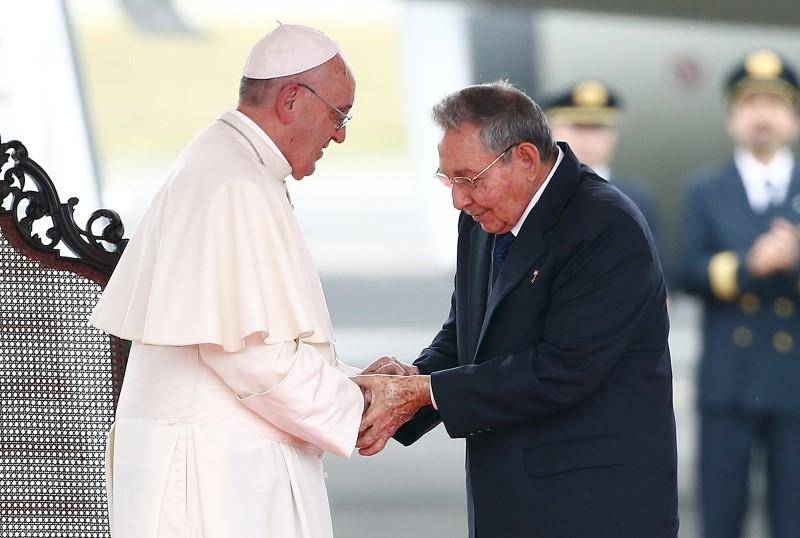HAVANA: Pope Francis exhorted Cuba and the United States on Saturday to set an example for the world by deepening the recent rapprochement that he helped secretly broker between the former Cold War foes. His zucchetto skullcap flying off in the Caribbean breeze at the start of a nine-day tour of Cuba and the United States, the Argentine pope used his arrival speech at Havana airport to praise this year's normalization of diplomatic relations.
"I urge political leaders to persevere on this path and to develop all its potentialities ... as an example of reconciliation for the entire world," he said before riding his open-sided popemobile through roads thronged with well-wishers.
Better sensitized to the issue than predecessors because of his Latin American roots, the 78-year-old pontiff facilitated a back channel for secret talks and sent missives to Presidents Raul Castro and Barack Obama at a delicate stage in 2014.
That bore fruit with a prisoner swap, the opening of embassies, and an easing of some travel and trade restrictions, although a half-century-old economic embargo is still in place, only removable by the U.S. Congress.
Francis is a popular figure in Cuba and thousands lined the streets of Havana as he was driven to the papal nuncio's home, cheering, singing, and waving Cuban and Vatican flags.
"He brings hope for a better future for Cuba," said Maria Antonia Iglesias, 65, waving a banner and clapping as Francisco passed by. "Love, peace and more unity is what we need between all Cubans: those who are here and those in the United States."
As on previous papal visits, Cuban authorities rounded up some political opponents to prevent them from attending events around the visit, a dissident human rights group said.
Among them were three dissidents whose detention kept them from a meeting with the pope, said Berta Soler, leader of the largely Catholic group Ladies in White.
Instead of seeing Francis at the Vatican's diplomatic residence in Havana, she and dissident leaders Miriam Leyva and Martha Beatriz Roque were in police custody for several hours, Soler said.
"The Holy Father is not going to change anything in Cuba," Soler said. "We don't expect much from Francis because he comes here to talk about political matters between Cuba and the United States, not to resolve anything."
Cuban police detained between 10 and 20 dissidents and a similar number were threatened or warned, said Elizardo Sanchez, head of the Cuban Commission of Human Rights and National Reconciliation.






